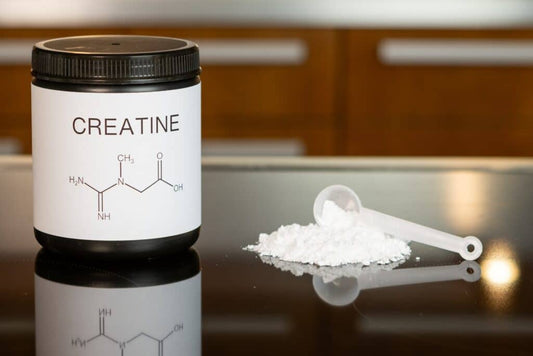Cultivating Immunity: Nurturing Your Inner Garden

In the intricate landscape of health, where the symphony of our bodies orchestrates well-being, the gut emerges as a vibrant metropolis, a thriving ecosystem of microbes that holds the key to a resilient immune system. Join me on a journey to understand and nurture this inner garden, exploring the profound connection between gut health and immunity.
The Microbiome: Your Gut's Symphony of Life
Picture your gut as a lush garden, a thriving microbiome comprised of trillions of bacteria, fungi, and microorganisms. This diversity is not just a visual spectacle; it's crucial for a robust immune system.
Research suggests that the diversity of our gut microbiome is like the biodiversity in a thriving ecosystem. A varied and harmonious microbiome is associated with a more resilient immune response. It's not just about quantity but also about the balance of these microscopic residents.
The Gut-Immune Axis: A Symbiotic Relationship
In this symphony of life, our gut and immune system engage in a beautiful dance. The microbiome acts as the choreographer, guiding immune cells in a graceful ballet. A healthy gut not only provides essential nutrients but also communicates with the immune system, offering guidance in distinguishing friend from foe.
Scientific studies reveal the intricacies of this dance. The gut and immune system are not isolated entities; they communicate through a complex network of signals. The microbiome doesn't merely coexist with our immune cells; it actively influences their behavior, contributing to the body's defense mechanisms.
Cultivating Your Inner Garden: Tips for a Flourishing Microbiome
Now, let's roll up our sleeves and tend to this inner garden. Here are practical and caring tips to cultivate a flourishing microbiome:
1. Diversify Your Diet: Just as a diverse garden is more resilient, a varied diet supports a rich microbiome. Incorporate a rainbow of fruits, vegetables, whole grains, and fermented foods into your meals. These foods not only provide essential nutrients for your body but also nourish the diverse microbial community in your gut.
2. Probiotics as Your Microbial Gardeners: Think of probiotics as your microbial gardeners, diligently tending to the health of your gut. Yogurt, kefir, and fermented foods like kimchi and sauerkraut are excellent sources. These probiotics introduce beneficial bacteria into your gut, contributing to its microbial diversity.
3. Fiber: The Soil of Your Gut Garden: Fiber acts as the nutrient-rich soil for your gut microbes. Whole grains, legumes, and fiber-rich fruits and vegetables provide the sustenance your microbiome craves. Fiber is not just about promoting regular bowel movements; it's about feeding the beneficial bacteria in your gut, helping them thrive.
4. Avoid Overuse of Antibiotics: While antibiotics are essential in certain situations, their overuse can disrupt the delicate balance of your gut microbiome. Use them judiciously and under medical guidance. Antibiotics, while crucial for fighting bacterial infections, can inadvertently impact the diversity of your gut microbes.
The Gut-Brain Connection: When Your Garden Flourishes, So Does Your Mind
As we nurture our inner garden, a fascinating connection unfolds - the gut-brain axis. The gut and brain engage in a continuous conversation, and a flourishing microbiome not only supports immune function but also contributes to mental well-being.
Research has delved into the intricate ways in which the gut and brain communicate. The microbiome influences not only immune cells but also neural pathways. The connection between gut health and mental well-being is a burgeoning field of study, revealing the profound impact of our inner garden on the holistic health of the body and mind.
Conclusion: Tending to Your Garden, Nurturing Your Immune Resilience
In the grand tapestry of health, our gut stands as a vibrant cornerstone, intricately connected to the resilience of our immune system. As we embark on this journey of cultivating our inner garden, let's approach it with care, warmth, and a sprinkle of wit. A healthy gut is not just a recipe for immune resilience; it's a celebration of life's rich, diverse, and flourishing ecosystem within.
So, tend to your inner garden with love, savor the diversity of nutrients, and watch as your immune resilience blossoms in harmony with the vibrant symphony of your microbiome.
References:
-
Sonnenburg, E. D., Smits, S. A., Tikhonov, M., et al. (2016). Diet-induced extinctions in the gut microbiota compound over generations. Nature, 529(7585), 212–215.
-
Lynch, S. V., & Pedersen, O. (2016). The Human Intestinal Microbiome in Health and Disease. New England Journal of Medicine, 375(24), 2369–2379.
-
Belkaid, Y., & Hand, T. W. (2014). Role of the microbiota in immunity and inflammation. Cell, 157(1), 121–141.
-
Maynard, C. L., Elson, C. O., Hatton, R. D., & Weaver, C. T. (2012). Reciprocal interactions of the intestinal microbiota and immune system. Nature, 489(7415), 231–241.
-
Cryan, J. F., & Dinan, T. G. (2012). Mind-altering microorganisms: the impact of the gut microbiota on brain and behaviour. Nature Reviews Neuroscience, 13(10), 701–712.



